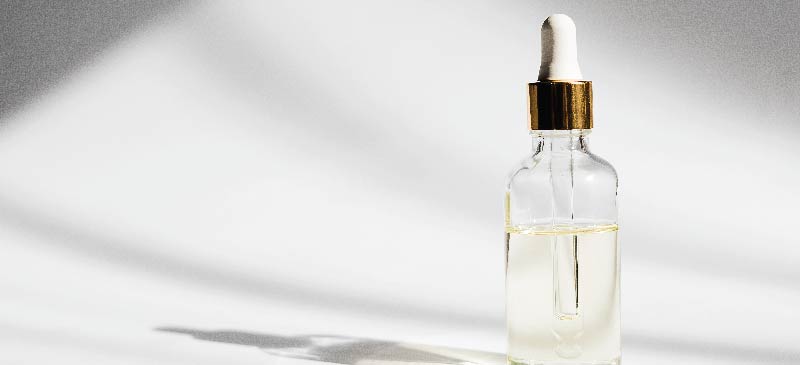
If you look at the ingredients in your current moisturizer, don’t be surprised to find “niacinamide” listed. Not to be confused with niacin, it’s a different form of vitamin B3 that is often included in cosmetic products because of its many potential skin-boosting benefits, including its ability to improve hyperpigmentation, visible signs of aging and acne.
Niacinamide also has the ability to generally improve the epidermal barrier, which helps improve skin quality by guarding against things like water loss, infections and more. This why there are many niacinamide topical products on the market today.
There are also products that can be taken internally for a variety of health concerns.
What Is Niacinamide?
Niacinamide is a form of vitamin B3, which can be found in foods as well as supplements. It’s also called nicotinamide.
It can naturally be obtained from foods like meat, fish, eggs, milk, beans, green vegetables and cereal grains.
This form of B3 is not the same as niacin, which is the other main form of vitamin B3. A common side effect of niacin is skin flushing.
While niacinamide does not cause a niacin flush, it also is not known to lower elevated cholesterol levels the way that niacin can.
The human body needs it to maintain healthy function of sugars and fats in the body. It’s also utilized for general cellular health.
In addition to getting this nutrient from foods and supplements, the body can also convert niacin into niacinamide. The essential amino acid tryptophan can also be converted into it.
Related: Nicotinamide Riboside: Effective Anti-Aging Supplement or Hype?
Health Benefits
There are many potential niacinamide uses and benefits, including:
1. May Help Improve Acne
When used topically, research shows that niacinamide benefits can include improvements in acne. For example, a 2017 scientific review highlights multiple studies that found that both topical niacinamide as well as internal supplements of this nutrient significantly decrease acne without any major adverse side effects.
2. Helps Reduce Hyperpigmentation
A study published in the British Journal of Dermatology found that topical application of niacinamide can help reduce hyperpigmentation and increase skin lightness. How long did the study subjects use a niacinamide topical product?
After four weeks of usage, the skin-lightening effects were observed by researchers.
3. Can Improve Rosacea Symptoms
Improving rosacea is another one of the many possible niacinamide benefits. One scientific review highlights how nicotinamide (the amide form of vitamin B3) has been used in dermatology for over 40 years for a diverse range of skin conditions, including rosacea and acne.
Rosacea, an inflammatory skin disease, has been successfully improved by both topical and internal use of niacinamide.
4. Needed for Energy Production and DNA Repair
The human body uses nicotinamide to create two very important coenzymes, which are known as nicotinamide adenine dinucleotide (NAD) and nicotinamide adenine dinucleotide phosphate (NADP). We need NAD and NADP for functions essential to our health, including energy production and repair of DNA.
READ RELATED: The Best Amazon Prime Day Skin-Care Deals You Can Score Already
5. Helps Protect Against Skin Cancer
Some research to date points toward the ability of this form of B3 to protect against skin damage caused by UV radiation and decrease the risk of developing skin cancers. A randomized trial published in the New England Journal of Medicine took 386 participants who had at least two nonmelanoma skin cancers in the past five years and had them take either 500 milligrams of nicotinamide twice daily or a placebo for 12 months.
Dermatologists evaluated the participants every three months for a total of 18 months. The researchers found that the high-risk participants who took the supplement for a year decreased their risk of new nonmelanoma skin cancers (including basal cell carcinoma and squamous cell carcinoma) by 23 percent.
The study also revealed how niacinamide supplementation reduced cases of actinic keratosis by 13 percent at 12 months. Actinic keratosis is the most common precancer that forms on skin damaged by chronic exposure to ultraviolet rays from the sun and/or indoor tanning.
Topical vs. Foods/Supplements
You can find topical products, such as face serums, face creams, face masks and eye creams, that contain niacinamide.
If you’re looking to up your internal intake of this form of vitamin B3, you can eat foods that contain it, such as cage-free eggs, green vegetables like asparagus, wild-caught salmon and mushrooms.
You can also take niacinamide supplements, which can be found in health stores or online.
What to Look For
When purchasing niacinamide products, make sure the ingredient list includes “niacinamide,” not just niacin or vitamin B3.
Look for niacinamide skin care products that are free of toxic ingredients like parabens and synthetic scents.
Depending on your skincare goals and current state of health (pregnant and nursing women cannot use products containing retinol), you can opt for topical products that contain other active ingredients, such as a niacinamide and vitamin C or a niacinamide and retinol face cream, serum or mask.
How to Use It
If you’re using a niacinamide cream as well as a niacinamide serum, the serum should be applied to clean skin before the cream.
For acne, scientific research has studied the topical use of a gel containing 4 percent niacinamide twice daily. Your dermatologist may have recommendations on a specific niacinamide acne treatment.
For internal use, check with your health care provider on the best dosage for your needs.
Avoid consuming alcoholic beverages while taking niacinamide supplements as well.
Risks and Side Effects
When taking by mouth, niacinamide side effects may include upset stomach, flatulence, dizziness, rash or itching. Taking more than three grams daily can cause more concerning side effects, such as high blood sugar and liver problems.
When used topically, it may result in mild redness, itching and/or burning. Discontinue use if you experience a negative reaction.
Check with your health care provider before taking a niacinamide supplement, especially if you are pregnant, nursing or have any ongoing health concerns, including allergies, liver disease, gallbladder disease, ulcers, gout and diabetes. It’s also not recommended to take this supplement two weeks before a scheduled surgery.
Conclusion
- Niacinamide is a form of vitamin B3 that can be found in foods as well as supplements and topical products.
- If you’re comparing niacinamide vs. niacin, these are two different forms of vitamin B3.
- Its benefits for skin include improvements in hyperpigmentation, signs of aging and rosacea. Supplementation may also reduce skin cancer risk.
- Look for natural products for topical use that are free of harmful toxic ingredients such as synthetic fragrances.
- Skin results (such as reduced hyperpigmentation or acne) can vary by user and also by the percentage of niacinamide in a topical product or supplement so it may take weeks to see improvement.
Source: Dr. Axe




